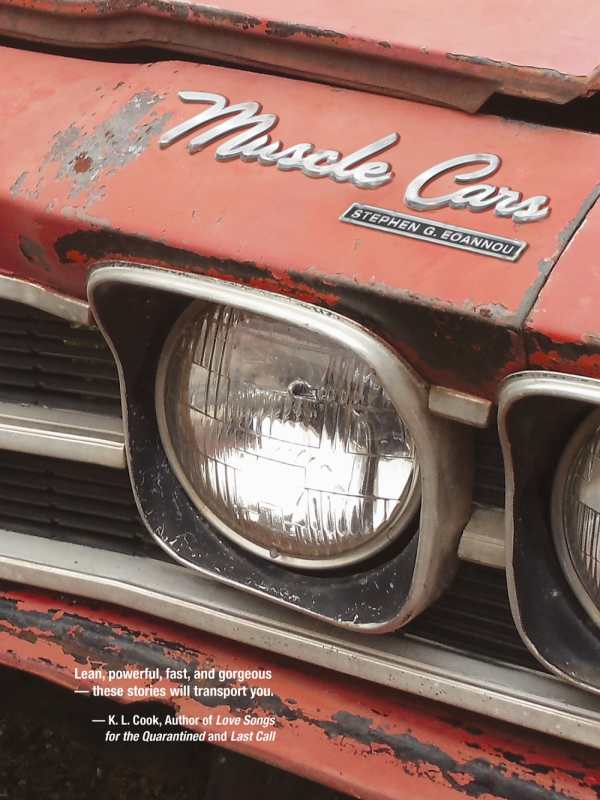Muscle Cars
Stephen Eoannou displays raw power, grace, and style in his appropriately titled collection, Muscle Cars.
Stephen Eoannou is confident enough as a writer to let his characters tell their own tales without undue literary embellishment, and the result is Muscle Cars, a collection of hard-hitting, meaty, and emotional stories.
Eoannou has been twice nominated for the Pushcart Prize, and stories from Muscle Cars have been published in selective journals like The MacGuffin, Rosebud, Hunger Mountain, Short Story America, and Hayden’s Ferry Review. The writer hails from Buffalo, New York, and the sense of place is omnipresent in these tales, with their mentions of Delaware Park, Forest Lawn Cemetery, and other local landmarks.
His characters, too, are relatable and realistic, from a father reflecting on his past (“Ohio Street”) to a man taking his elderly father to the hospital for surgery (“Lost Things”). There’s a sense of deeper meaning and secrets uncovered in the mundane details, such as this passage from “Lost Things”:
A statue of Saint Anthony, the patron saint of lost things, stood by the main entrance, his arms open, his palms turned upward in what was meant as a welcoming gesture but what struck me then as a resigned shrug, a public admission that he couldn’t find shit, that once something’s lost, it’s gone for good.
Eoannou’s writing can be innovative—there’s a wonderful transition from the story “Mementos” to the next, “Welcome Home Xmas 1945,” for example. But the main descriptor for these stories is “substantial.” No matter how brief, there’s nothing here that feels like a thrown-off experiment or novelty. Even those touches that lean toward the surreal or humorous, such as the narrator’s debate about whether to go through with the plan in “Stealing Ted Williams’ Head,” illustrate more universal themes, like accepting responsibility and the cost it incurs.
Muscle Cars perfectly encapsulates the magic of short stories—read separately or as part of a whole, their characters and themes linger well past the last sentence.
Reviewed by
Peter Dabbene
Disclosure: This article is not an endorsement, but a review. The publisher of this book provided free copies of the book to have their book reviewed by a professional reviewer. No fee was paid by the publisher for this review. Foreword Reviews only recommends books that we love. Foreword Magazine, Inc. is disclosing this in accordance with the Federal Trade Commission’s 16 CFR, Part 255.

